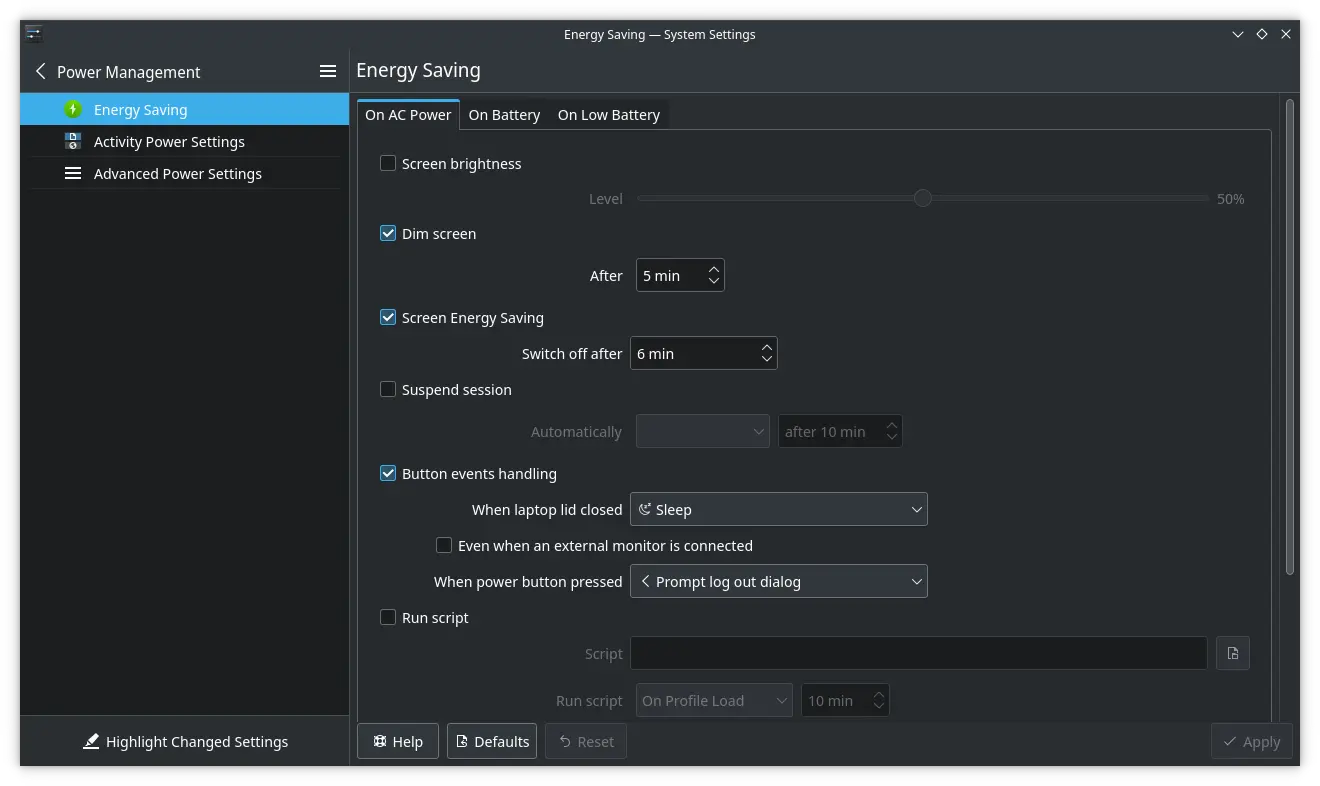I’m just thinking out loud here.
Steam Deck 2 is a long way away, and I think that’s great. Giving developers a specific hardware target is crucial, and having consumers feel like they need to immediately upgrade is bad.
However, I think there is room for an advanced SD that’s not necessarily “new” but just an external improvement over the existing model at a higher price tier for those looking for a premium experience.
Also I’m going to be nitpicking here, don’t take that the wrong way, I love the SD but it does have some weak points.
So then Steam Deck LE would be identical to the current one with the exception of:
-
The screen. Wow this is probably the greatest weakness of the SD. A larger display with smaller bezels and better color accuracy would go a long way to improving the experience.
-
Hall Effect joysticks. Again, nitpicking here but it’d be nice to see a premium version with these included.
-
1TB SSD. I originally bought the 64GB version thinking I would just use an SD card no problem. But the ridiculous amount of shader cache, the various Proton versions (~1GB each) and some other software like EmuDeck and Heroic, as well as the annoyance of moving things back and forth had me upgrading quickly to a 1TB, which immediately ended all of those concerns.
-
Different color ways. I’m partial to white but a transparent purple version would be nice to see also.
-
At least 1 more USB-C port… so we can do things like video out while charging.
What else would you like to see added?
I just want to be able to download games in the background with the screen off. My internet is crappy at times and I don’t really like leaving the screen on overnight just to download a game or two.
A “finish downloading this, then turn off” feature would certainly be a nice addition.
Doesn’t that exist already? If I leave the deck on downloading a game it will turn off after.
It does, but only on charge.
I’ve said this elsewhere, but every other PC has an “update and shut down” feature.
I switch to Desktop mode, change the power settings to have the screen turn off, but disable auto-sleep, and then just let the Desktop Steam download the updates.

I’ll give it a shot thanks!
Well, that’s a software feature.
I noticed recently that mine will actually go to sleep after it finishes an update/install.
I agree, it’s a bit annoying. Maybe you could put it in desktop mode, and configure it to turn screen off but not go to sleep? It’ll still do updates then.
I heard that this works on desktop mode, but never tried myself
You can sorta do it with a shutdown +90 terminal command (or whatever you estimate the time to be).
I’d love some kind of s0 sleep support where it stays awake to finish updates and downloads and then goes to proper sleep
I think that might be possible with just a software update
I think like most people I’d just appreciate less bezel. The screen itself looks fine for me (not that I wouldn’t be happy with an upgrade), but the larger issue is the bezel; it’s kinda huge.
Oled buttons. So we can show what we want on them, not just xyab, but symbols, etc…
Noled buttons. Completely blank, and therefore never showing an incorrect glyph!
deleted by creator
Make it color e-ink and this sounds brilliant!
That sounds cool but also so unnecessary! Do you look at the physical buttons when you’re playing? Can you not just set up on-screen buttons to use with the touchscreen?
Yeah and transparent so they can put more rgb lights inside so they all go full seizure mode so everyone knows I’m gaming.
I think people are missing the fine line of the statement, “don’t expect a more powerful SD soon” I think they will release with a new chip with equal performance but less power draw for longer playtime.
My biggest wish for a Steam Deck Pro or whatever would be a variable refresh rate screen. 60Hz is still fine for the handheld format given the current Deck APU specs, but if it could handle frame dips below 60 without requiring manually fixing the refresh rate lower or dropping to 30 that would be wonderful.
VRR displays almost require >60hz, they don’t work properly when they don’t have a significant range to work with. Although in theory if it clocked down to at least 30hz (preferably lower) that would be okay, but that’s fairly uncommon.
There are 60Hz VRR displays but they’re not as common, especially not anymore. They do exist. With the right VRR range and LFC (low-framerate compensation, which doubles the refresh rate and displays the same frame twice to achieve VRR at rates below what the display supports) it would still be able to achieve smoother frame rates than a hard drop from 60 down to 30 which is what you get with conventional vsync. If a game runs between 40 and 60 FPS and you had the Deck set to 60Hz, you would get bad stuttering/jittering as it continuously goes from 30 to 60 FPS but with VRR it would simply slow down the display gently. My old 2017 Razer Blade Pro has a 60Hz 4K VRR panel and, while I don’t game on it much at all anymore, it did work in the same sort of situations.
I don’t understand how you claim that it doesn’t have variable refresh rate and then gripe about having to vary the refresh rate in the same comment.
Adjustable refresh rate and variable refresh rate are not the same thing…have you ever used a VRR display (Freesync/GSync)? VRR means the panel refresh changes dynamically with the game framerate. Having an adjustable fixed refresh range between 30 and 60 is damn nice compared to a fixed 60, but VRR is better and would hugely benefit the Deck since it tends to run a lot of games sub-60.
Adjustable refresh rate and variable refresh rate are not the same thing…
I mean it sounds a whole lot like the same thing…
Sounds like you’ve never used a VRR display. It’s actually very obvious you’ve never used a VRR display. Once you use one you won’t want to go back. Fixed refresh stutters and/or tears when the game frame rate doesn’t match the display’s refresh rate. VRR just dynamically speeds up or slows down the panel refresh to match, giving a tear-free image with as minimal stuttering as possible. Just because the Deck display supports a wide range of fixed refresh rates does not make it anywhere near equivalent to a proper VRR panel as the Deck screen does not adjust dynamically to match the game FPS.
That’s not correct. I have used several.
How does my personal experience weigh into terminology?
If you’ve used a VRR display you would be able to see the difference between the fixed but selectable refresh rate of the Deck and proper variable, dynamic refresh rate. There’s a very noticeable difference. The Deck is not VRR. It was never claimed to be VRR. Some of the other handhelds like the ROG Ally do have VRR screens. A VRR screen for the Deck would be an upgrade. I’m not sure why this merits any sort of debate.
So after I use it, the definition of VRR will change, is that right?
At least the joysticks, bigger SSD and different color are all attainable with a small bit of tinkering. There’s even an aftermarket screen with a higher resolution available. But I don’t know if that has smaller bezels.
And video out while charging can be handled by whatever dongle you use for video out. But I know what you mean.
Multiple USB-C ports is the one that I’d notice most. Less bezel would be good, too, but it wouldn’t change how I use it.
A bottom USBC for docking like the Switch would be awesome, and having two ports would allow an unpowered monitor or dock/hub while charging. A USBA port on top as well would be nice if they could fit it.
Having the port on the bottom was by far the worst design decision of a bunch of bad design decisions for the Switch. It makes charging while using it a trash experience.
If the deck had 50 ports, 0 should be on the bottom.
I think one on top and one on bottom would be best. Bottom for docking, top for charging while playing.
Thunderbolt for eGPU support, ideally with a more elegant dock that doesn’t have the little cable hanging out.
Not directly relevant but if you have the 64gb deck and a big SD card: you can symlink the directory that houses all the proton versions and shader catches to the SD card.
That was pretty much the first thing I did after I got my deck, as a stopgap before I could upgrade the SSD but it’s been working well enough I never got around to swapping out the SSD after, what, almost two years?
Out of curiosity, did a symlink actually work or did you need a bind mount?
I ask because I had issues with cloud saves not working for BG3 (which I got through GOG, not Steam) and as a workaround I put my save folder in Dropbox and sym linked to it from every system I play on. But on the Steam Deck specifically the sym link didn’t work and I had to create a bind mount instead. I wouldn’t be surprised if Steam and Proton used the same file management libraries.
I didn’t do any fancy mounting, as far as I can remember. I think it really was just a matter of copying the directories to my SD card and replacing the directories on the deck with links to the ones I copied to the card.
I’ll take a look at what I did the next time I get the deck out and let you know
From your follow-up message where you confirmed - thank you for checking and confirming! I don’t have a 64 GB Steam Deck but some of my friends might (they have Steam Decks, I just don’t know what sizes) and that confirmation will make it way easier for me to help them make the same change if they ever complain about running out of main drive storage.
Given the recent price cuts in SSDs, I hope that Valve will double the storage capacity of all Steam Decks, e.g. 128/512/1024 GB.
You thought about adding a new SSD yourself?
Yes that’s what I said
Ah sorry must have misunderstood/brain skipped.
+1 for new screen. The bezel is really bad. The current resolution just doesn’t show enough detail on some games (Rocket League for example looks awful on the deck to the point where you’re playing with a handicap)
Controller input latency (using the newer “xbox wireless controller” connected via Bluetooth) needs to be improved
Ergonomics could be improved. After a few hours, the neck starts to feel it. So I find myself compensating by holding it up higher. Not sure how they could improve the neck issues without a detachable screen or something. Hand/wrist discomfort could definitely be improved.
Bluetooth isn’t capable of acceptable controller performance. It’s not better on Windows.
The resolution is a deliberate choice. A higher resolution screen isn’t worth the trade off.
Well these controllers ship with bluetooth connectivity, so it stands to reason that they should work towards their intended purpose.
I’m able to play most games with noticeable yet acceptable input lag, but not for competitive/online games. It feels like it’s close, and efforts toward optimization could get it there.
On the other hand the 2.4ghz dongle doesn’t work out of the box so that would be a nice addition.
You’re saying a higher res screen would cause issues with battery life and performance in the current deck, but we’re talking next gen.
Edit: I misread the post. The screen upgrade can only work in next gen and your point stands.
It’s not playable with Bluetooth on any platform. Input lag is not mild. It’s every bit as completely unplayable on Windows.
Talking about a handheld and neck issues kind of go hand in hand. It’s been an issue since the first handheld. I’m afraid Valve won’t be able to patch anatomy.
Resolution doesn’t bother me, personally. If they put a higher one in, I’d probably run it at 720p regardless.
Ergonomics takes me back to my last point: you can use something like the NREAL AR glasses. But you can’t use those and charge at the time time without a goofy dongle.
Other than that, I’m not sure there’s a lot they can do about it
Wow Steam actually got almost all of these 🤣















